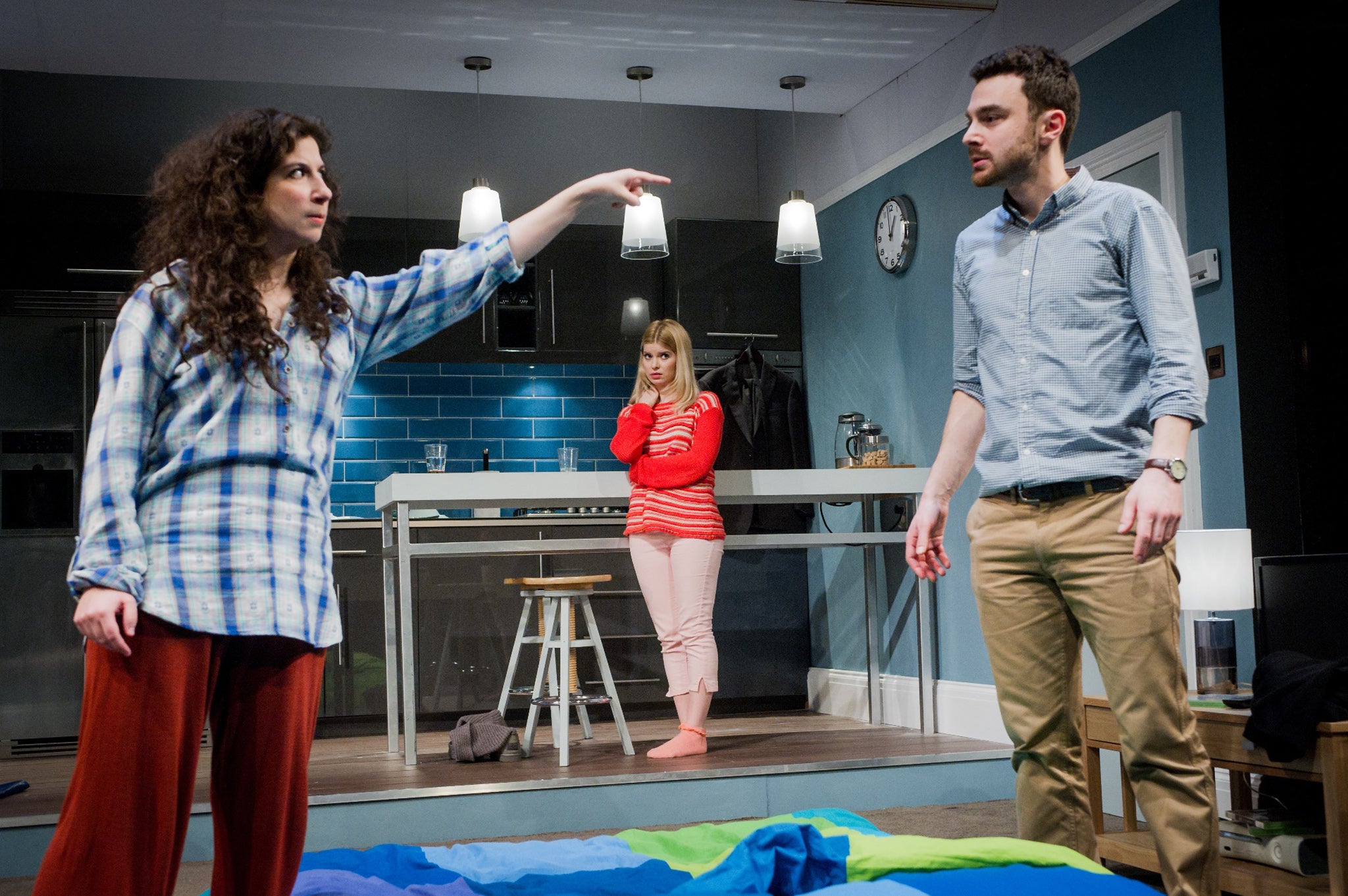Bad Jews, St James Theatre: witty, acerbic family drama is outrageously fun
Joshua Harmon's big themes emerge thoughtfully

Deservedly transferring from Bath - having been imported from the US - Joshua Harmon’s 90-minute blast of family drama is drawn so sharply you'd think he’d sliced it out of his imagination with a scalpel. For a while, that seems to be all it is: witty, acerbic dialogue between privileged Millennials - three cousins, and a girlfriend - airing angst following the funeral of their grandfather, Poppy.
It takes place in real time, in a realistically rendered New York studio apartment. “Super Jew” Daphna (Jenna Augen) gets annoyed with “bad Jew” cousin Liam (Ilan Goodman) for his scorn of her faith, their heritage - and for his choice of blonde-haired, air-headed girlfriend Melody (Gina Bramhill, very funny). Liam, meanwhile, condemns Daphna for phoney righteousness and overbearing self-importance. His brother Jonah (Joe Coen) just wants a quiet life: fat chance of that.
These characters can be outrageously awful, which can be outrageously fun to watch - thanks in no small part to the performers. All are good, but Augen is particularly notable as Daphna: shrill and difficult, ragging on an issue or an exposed weakness like a dog with a bone, in a way that’s wincingly, irritatingly recognisable - there’s one in every family, right?
Things get increasingly nasty as they maul each other over who inherits Poppy’s chai, a Jewish symbol worn round the neck, which he managed to hold on to through the Holocaust… the significance of this is not so simple, however: for Daphna, it symbolises faith, at whatever cost; to Liam, it speaks secularly of the power of love.
As Bad Jews goes on, under the sure hand of director Michael Longhurst, its big themes emerge thoughtfully, subtly; a soft rebuke to that glaring title. Not matter how nightmarish their behaviour, eventually we are swayed to sympathy and understanding with all the characters’ wildly opposing views: on the point of religion, the need for tradition, and how the past shapes - or merely accessorizes? - our identity in a modern, globalised world.
To 28 Feb; stjamestheatre.co.uk
Subscribe to Independent Premium to bookmark this article
Want to bookmark your favourite articles and stories to read or reference later? Start your Independent Premium subscription today.

Join our commenting forum
Join thought-provoking conversations, follow other Independent readers and see their replies